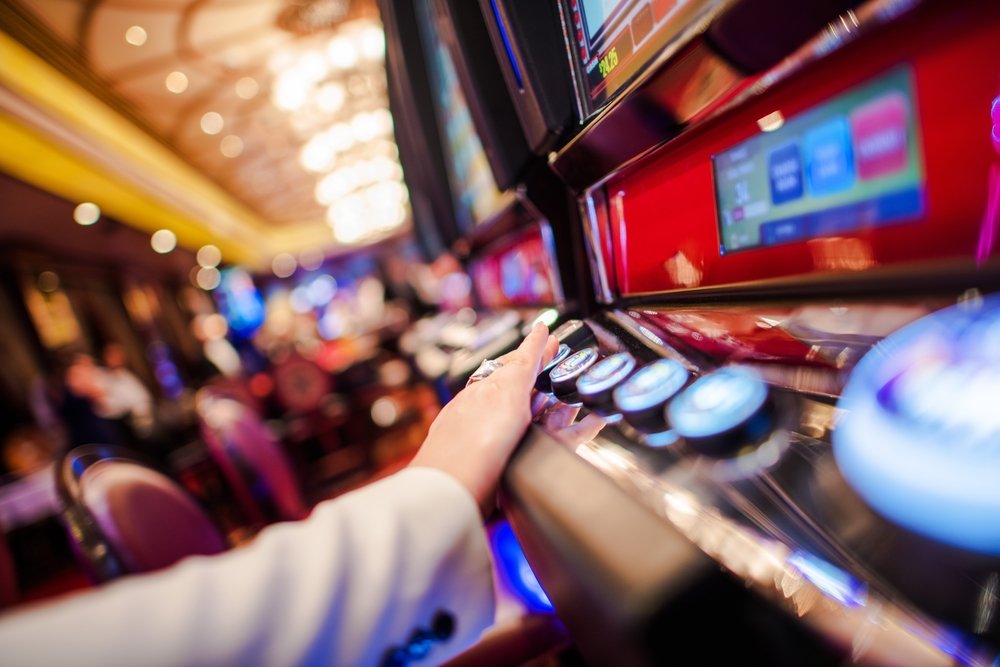NRS 465.070 is the Nevada statute that makes it illegal to do any of the following:
- cheat or manipulate gambling games,
- place bets based on insider information,
- collect or claim money fraudulently,
- entice others to participate in illegal gambling, offer bribes to influence game outcomes, or
- violate the law through agreements with players or officials.
A first-time conviction of gaming fraud is a category C felony that carries
- 1 – 5 years in Nevada State Prison and
- up to $10,000 in fines, plus
- restitution.
In this article, our Las Vegas criminal defense attorneys discuss:
- 1. What is gambling fraud in Nevada?
- 2. How do I fight the charges?
- 3. What are the penalties for violating NRS 465.070?
- Additional Resources
1. What is gambling fraud in Nevada?
NRS 465.070 lists various actions that are considered unlawful gambling activities in Nevada. These include
- altering or misrepresenting the outcome of a game,
- placing a bet or determining the course of play after acquiring knowledge of the outcome of the game (insider information),
- claiming or taking money without having made a wager or claiming an amount greater than the amount won,
- enticing or inducing others to participate in illegal gambling activities, and
- manipulating or tampering with gaming devices to cheat.
It is also illegal to offer or give anything of value to influence the outcome of a race or game or to violate any provision of NRS 465.070 through an agreement with a
- player,
- participant,
- judge,
- referee,
- manager,
- coach, or
- other official.
Note that you may be convicted of gambling fraud in Nevada even if you are not the one physically making a bet. Merely helping somebody else commit fraud carries criminal liability as well.
Example: Jim goes to a blackjack table at the Green Valley Ranch casino, where he is friends with a casino host, John. John whispers to Jim that the deck is “hot,” and John places a large bet. If caught, both John and Jim could be booked at the Henderson Detention Center for violating NRS 465.070 in Nevada.
Also, note that it makes no difference if you end up losing money from relying on insider information. Simply the act of using insider information invites criminal prosecution irrespective of the outcome.1
Finally, note that people suspected of gaming fraud can be detained and placed under a citizens’ arrest by casino security until the police arrive.2 These cases may eventually be investigated by Las Vegas Metro’s Financial Crimes Unit.
See our related article about the Nevada crime of cheating at gambling (NRS 465.083), which is a lesser included offense of NRS 465.070.

NRS 465.070 makes gaming fraud a felony crime in Nevada.
2. How do I fight the charges?
When fighting allegations of gambling fraud in Nevada, defense attorneys draw on many possible strategies to weaken the prosecution’s case. The following are some of the more common defenses:
- No fraud. Perhaps law enforcement presumed you were committing fraud when, in reality, you were just being a savvy or lucky gambler. As long as your criminal defense attorney can demonstrate that your actions fell outside the realm of fraud, the charges should be dropped.
- False allegations. Perhaps someone levied false allegations at you out of anger, revenge, or a genuine misunderstanding. Your criminal defense attorney would investigate the accuser’s motive and impeach their credibility in an attempt to show that the accusations are untrue.
- Illegal search. The police may have conducted an unlawful search when investigating gambling fraud. In this case, your defense attorney would file with the court a motion to suppress evidence asking the judge to disregard any evidence procured from the unconstitutional police actions. If the court complies, the D.A. may decide to throw out the whole case for want of proof.
In any case, you should not be convicted of gambling fraud unless the court finds you guilty beyond a reasonable doubt. So if the prosecution’s evidence contains too many inconsistencies or inadequacies, you should not be held liable.
3. What are the penalties for gaming fraud?
A first-time violation of NRS 465.070 is a category C felony in Nevada, carrying
- 1 – 5 years in prison and
- up to $10,000 in fines, plus
- restitution.
Subsequent convictions are a category B felony, carrying
- 1 – 6 years prison and
- a maximum $10,000 in fines, plus
- restitution.3
Unlawful dissemination of racing information
Nevada has a specific fraud statute making it unlawful to spread insider information about racing with the intent to induce betting or wagering based on the information. it is also a category B felony in Nevada carrying:
- 1 – 6 years in prison and/or a maximum $5,000 in fines, and
- restitution to the casino or gaming establishment.4
Additional Resources
If you or someone you know is struggling with a gambling addiction, refer to the following:
- Gamblers Anonymous – 12-step argument to overcome a gambling addiction.
- National Problem Gambling Helpline Network – Call 1-800-GAMBLER for local resources, including in Nevada, provided by the National Council on Problem Gambling (NCPG).
- Compulsive Gambling – Informational article by the Mayo Clinic about what constitutes a gambling addiction.
- How gambling affects the brain and who is most vulnerable to addiction – Monitor on Psychology article about the neurological consequences of gambling.
- Gambling Addiction: Resources, Statistics, and Hotlines – Information compiled by the University of Nevada, Reno.
See our related articles on unpaid casino markers (NRS 205.130) and unlawful acts re. gaming devices (NRS 465.085). Also go to the Nevada Gaming Control Board for more information.

